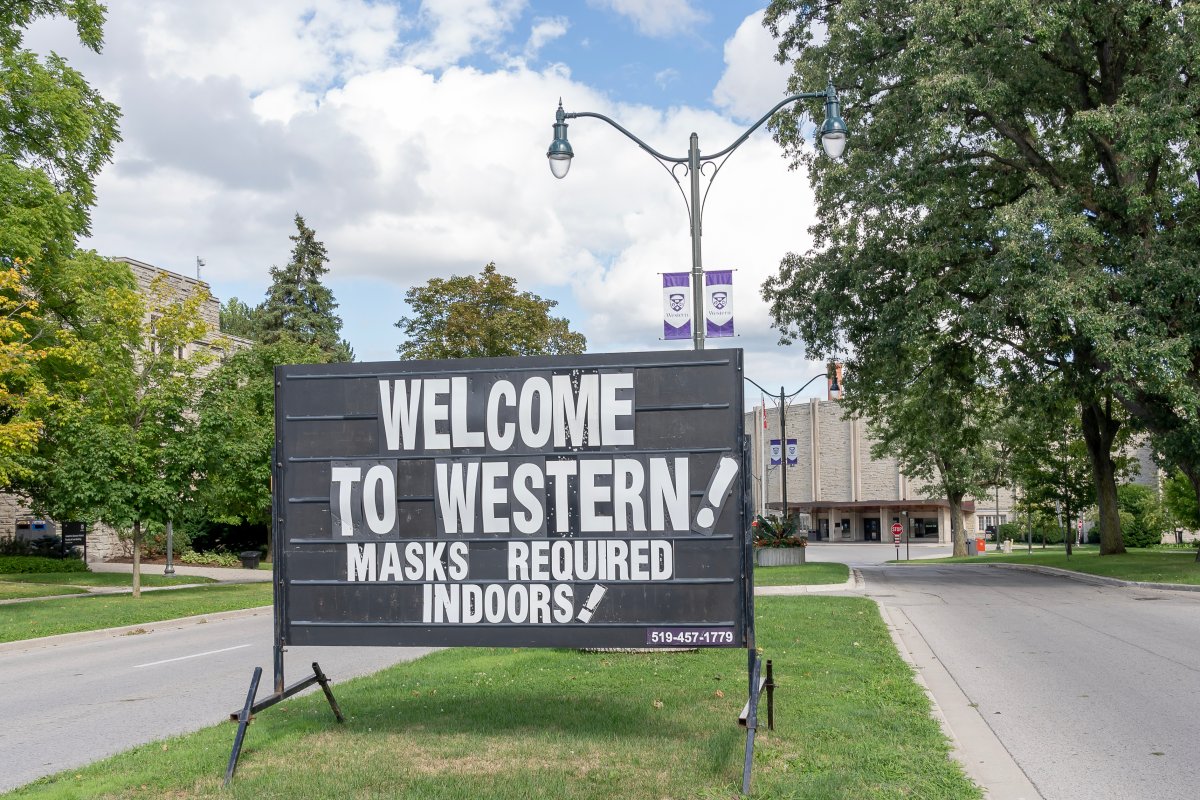A new research study from Western University researchers says that returning students in university towns could double the number of COVID-19 infections.

The study by researcher and lead author Lauren Cipriano, associate professor of management science at Ivey Business School, who is also cross-appointed to the department of epidemiology and biostatistics at Schulich School of Medicine & Dentistry, projects that the return of university students can lead to a doubling of infections over a single semester in mid-sized communities with previously low levels of COVID-19 activity.
The new research paper, “Impact of university re-opening on total community COVID-19 burden”, said more than two-thirds of infections attributable to the return of university students occur in the general population, leading to increased COVID-19 hospitalizations and death.
Cipriano said the findings are important for making public health decisions and suggests that mass screening and high-frequency testing of students can make a significant difference.
While screening the student population frequently may be challenging, the study argues a one-time mass screening event at the end of September would help identify and isolate a large fraction of asymptotic infections in the student population to reduce community infection.
“We know a third of cases are asymptomatic and as we move into a younger demographic more people are asymptomatic, and it’s important to identify those people not necessarily for their own health information but testing for prevention,” Cipriano said.

Get weekly health news
“The choices communities make around what types of businesses to open, diligent masking, and the amount of physical, social interaction will determine the feasibility of maintaining essential activities like in-person primary and secondary education and continued access to elective surgeries.”
The research, funded by the Western University Catalyst Research Grant and a grant through Johns Hopkins University, uses a model of COVID-19 transmission and hospital resource utilization in London.
“Fortunately, university students are an identifiable high-transmission group, and our research shows that even a one-time mass screening event early in the term can identify asymptomatic infections and influence the transmission trajectory,” Cipriano said.
As of Tuesday, at least half the 49 cases reported over the last week involved Western University students. At least two outbreaks declared by the health unit last week were associated with Western students.
One outbreak, declared in the wake of a large house party last weekend, has been linked to at least 17 cases, while another, “Western Student Outbreak Alpha,” has also left at least 17 people infected.
At least two COVID-19 cases reported in the area are Fanshawe College students.
Cipriano said they modelled the study off of what is happening in London but said the work represents a lot of midsized cities with large college and university populations across North America.
The model looks at the number of infections expected in the university student population, the general population, and long-term care residents, with and without the return of the student population. It also incorporated people’s responses as numbers increase and hospitals gain more patients also taking into account the COVID-19 mortality in the community.
“We have a limited opportunity to make a significant difference in the course that this virus will take in our community, and the time for a coordinated mitigation event is now,” says Dr. Wael Haddara, study co-author and chair and chief of critical care medicine at London Health Sciences Centre.
Haddara said they hope they can build on the strong partnerships that are already in place between the city, university, public health, primary care, long-term care, and the hospitals to bring evidence-informed mass screening solutions to practise.












Comments